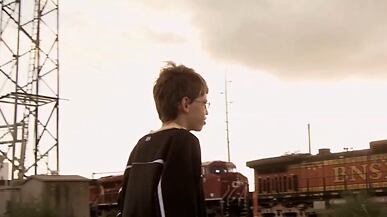Two-and-a-half years ago when Lee Hirsch began work on his documentary The Bully Project, which premiered at the Tribeca Film Festival last weekend, bullying wasn’t the hot-button issue it is today. In September of 2010, the suicide of Rutgers University student Tyler Clementi, a victim of cyberbullying, launched the issue into the public eye. A spate of anti-bullying campaigns, like Dan Savage’s “ It Gets Better” YouTube series, followed. Forty-five states currently have anti-bullying laws of some sort. However, bullying has proved too ingrained in the American school system to be eradicated so easily.
Last year, a group of several Boston teenagers allegedly tormented 15-year-old Phoebe Prince until she took her own life. Despite the anti-bullying laws in Massachusetts, five of the six charged in the Prince case struck a plea bargain and will receive only misdemeanor charges. Last week, Clementi’s tormenter, 19-year-old Dharun Ravi, was indicted by a New Jersey grand jury, and is scheduled to appear in court on May 23. The decision of his case has the potential to set a precedent for cyberbullying being treated as a serious criminal offense.
“Maybe the time has come—it’s that tipping point moment,” Hirsch said at the film’s premiere. “[Bullying] is one of the last silences in our society. I hope that the amplification continues, and it continues around change.” The Bully Project, which was recently acquired by the Weinstein Company, follows five victims of bullying and their families for a year, creating a remarkably vivid picture of a bullied child’s world. Hirsch says that the inspiration behind the documentary was to show that bullying was not just "kids being kids," but real abuse, with serious consequences.
“I wanted to show bullying in an undeniable way,” said Hirsch. “I wanted it to be in your face—this is what it is, this is what goes on, so it’s not just numbers and constructs and random ideas but it’s something real- real kids, real families.”
Those kids include Kelby Johnson, a 16-year-old girl from Tuttle, Oklahoma who saw her high school turn against her when she came out as a lesbian. After Hirsch read a letter her parents wrote to The Ellen DeGeneres Show asking for help, he contacted her about appearing in the documentary.
“The biggest takeaway from this film is that is that each individual can stand and make a difference,” Lee Hirsch told The Daily Beast.

“It was a little embarrassing at first,” Kelby told The Daily Beast. “I don’t want people to think I’m not strong by any means, but after a while you kind of figure out that if this helps other kids then why not? It’s a very humbling experience.” At one point in the film, Kelby recalls how a group of “six older guys driving in their mom’s minivan” yelled slurs at her, and then hit her with their car. “The bullying got so bad I had to drop out of school,” she admits, “I got my GED and will hopefully get into college soon.”
Perhaps most affecting is Alex Hopkins, a shy 14-year-old from Sioux City, Iowa.
Hirsch’s camera captures the quiet horror of Alex’s everyday existence. Ostracized by the other children, he has no friends. On the bus he is punched, choked, and stabbed with pencils. When he tries to be included in a conversation, a boy snarls at him, “I will break your Adam’s apple, which will kill you.”
Hirsch obtained permission from the Sioux City school system to film Alex inside the school and on the bus. Hirsch gives credit to the school system for allowing themselves to be so publicly exposed. “99 percent of the schools in this country would say, “Get the hell out of here, there’s no way, you have no chance. We have no bullying, no, go away.”
However, it’s difficult to give any school system credit that takes so little responsibility for its students. Fearing for Alex’s safety, Hirsch shows his parents footage of the boy being assaulted on the bus. When Alex’s parents go to the school’s assistant principal for help, the meeting doesn’t end with a solution, but with the bureaucrat arguing that she’s been on Alex’s bus and the children on it are “good as gold.”
The superintendent of the Sioux City school system, Dr. Paul Gausman, made an appearance during a Q& A session after the premiere of The Bully Project.
“We’ve got some work to do”, admitted Dr. Gausman, “not just in Sioux City but all the way across this country and we recognize it.” He pledged that he was in the process of making changes to combat bullying in Sioux City schools. “We’ve completely reinvented the way that we’re trying to install systems in our buses to better learn about what’s actually happening on [them].”
However, Alex’s mother was skeptical about Dr. Gausman’s promises. “He hasn’t done anything. I don’t know what he’s talkin’ about….They’re politicians. They’re all politicians. He just said what he thought everybody wanted to hear. It was very hard [to listen to].”
It may be difficult to make some school officials pay anything but lip service to their bullying problems, but The Bully Project’s director encourages each person to do what they can.
“The biggest takeaway from this film is that each individual can stand and make a difference,” Hirsch told The Daily Beast. “And that’s awesome, if you stand up for someone who’s being bullied, you can change their reality, you can change their life and that’s the power that you have.”





